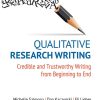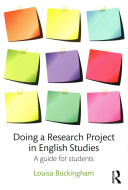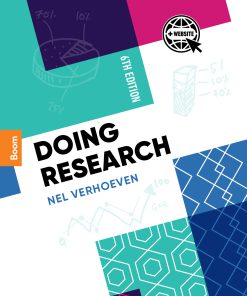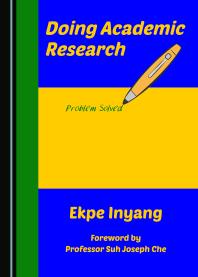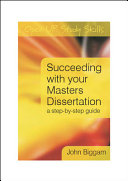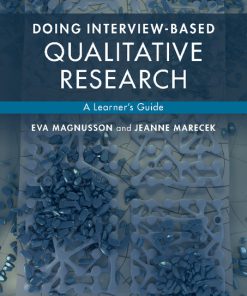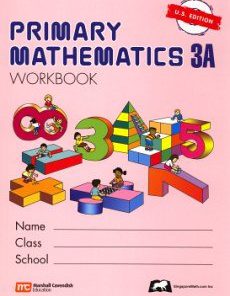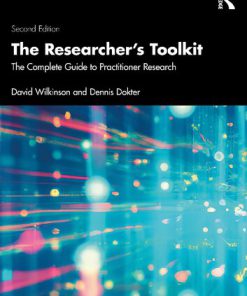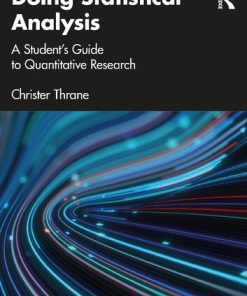Doing Research A New Researcher s Guide 1st Edition by James Hiebert, Jinfa Cai, Stephen Hwang, Anne K Morris, Charles Hohensee ISBN 3031190807 9783031190773
$50.00 Original price was: $50.00.$25.00Current price is: $25.00.
Doing Research A New Researcher s Guide 1st Edition by James Hiebert, Jinfa Cai, Stephen Hwang, Anne K Morris, Charles Hohensee – Ebook PDF Instant Download/Delivery: 3031190807 ,9783031190773
Full download Doing Research A New Researcher s Guide 1st Edition after payment
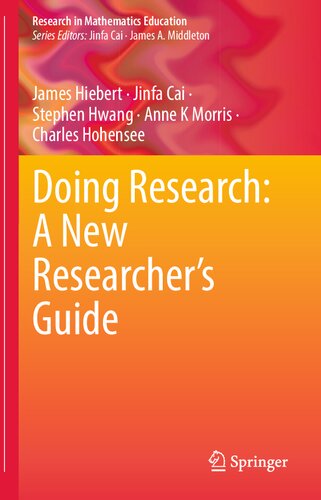
Product details:
ISBN 10: 3031190807
ISBN 13: 9783031190773
Author: James Hiebert, Jinfa Cai, Stephen Hwang, Anne K Morris, Charles Hohensee
Doing Research A New Researcher s Guide 1st Edition Table of contents:
Chapter 1: What Is Research, and Why Do People Do It?
Part I. What Is Research?
Creating an Image of Scientific Inquiry
Descriptor 1. Experience Carefully Planned in Advance
Descriptor 2. Observing Something and Trying to Explain Why It Is the Way It Is
Descriptor 3. Updating Everyone’s Thinking in Response to More and Better Information
Doing Scientific Inquiry
Unpacking the Terms Formulating, Testing, and Revising Hypotheses
Learning from Doing Scientific Inquiry
Part II. Why Do Educators Do Research?
Part III. Conducting Research as a Practice of Failing Productively
Part IV. Preview of Chap. 2
Chapter 2: How Do You Formulate (Important) Hypotheses?
Part I. Getting Started
Part II. Paths from a General Interest to an Informed Hypothesis
Beginning with a Prediction If You Have One
Developing a Rationale for Your Predictions
Imagining Testing Your Hypotheses
Cycles of Building Rationales and Planning to Test Your Predictions
Beginning by Asking Questions to Clarify Your Interests
Imagining Answers to Your Questions
Shifting to the Hypothesis Formulation and Testing Path
Cycles of Refining Questions and Predicting Answers
Beginning with a Research Problem
Part III. One Researcher’s Experience Launching a Scientific Inquiry
Part IV. An Illustrative Dialogue
Part V. Is It Always Possible to Formulate Hypotheses?
Can You Always Predict What You Will Find?
The Benefits of Making Predictions Even When They Are Wrong: An Example from the 1970s
Suggestions for What to Do When You Do Not Have Predictions
Should You Always Try to Predict What You Will Find?
Making Your Predictions Explicit Increases Your Chances of Productive Observations
Making Your Predictions Explicit Allows You to Guard Against Biases
Making Your Predictions Explicit Can Help You See What You Did Not Predict
Making Your Predictions Explicit Allows You to Plan in Advance
Making Your Predictions Explicit Allows You to Put Your Rationales in Harm’s Way
Making Your Predictions Explicit Forces You to Organize and Extend Your (and the Field’s) Thinking
The Costs of Not Making Predictions
Part VI. How Do You Formulate Important Hypotheses?
Part VII. Beginning to Write the Research Paper for Your Study
Part VIII. The Heart of Scientific Inquiry
Chapter 3: Building and Using Theoretical Frameworks
Part I. What Are Theoretical Frameworks?
Definitions of Theories
Theoretical Frameworks Are Local Theories
Part II. Why Do You Need Theoretical Frameworks?
Supporting Your Predictions
Crafting Appropriate Methods
Guiding Interpretations of the Data
Showing the Contribution of Your Study
Showing How Your Study Extends What Is Known
Setting the Parameters for Your Contribution
Anchoring the Coherence of Your Study (and Your Evolving Research Paper)
Part III. How Do You Construct a Theoretical Framework for Your Study?
Building a Theoretical Framework in Phases
One Researcher’s Experience Constructing a Theoretical Framework: The Continuing Case of Martha
Constantly Improving Your Framework
Reviewing Published Empirical Evidence
Examining Theories
Focusing on Variables and Mechanisms
How Do You Know When You Have Finished Building Your Theoretical Framework?
Part IV. Refining a Theoretical Framework: A Scholarly Dialogue
Part V. Distinctions Between Rationales, Theoretical Frameworks, and Literature Reviews
Thinking Through a Study
Writing the Evolving Research Paper
Part VI. Moving to Methods
Chapter 4: Crafting the Methods to Test Hypotheses
Part I. What Does It Mean to Test Your Hypotheses?
Part II. What Are the Best Methods for Your Study?
Choosing the Design for Your Study
Experiment
Correlation
Description
Developing Measures and Procedures for Gathering Data
Craft Measures That Produce Data at an Appropriate Grain Size
Develop Your Own Measures or Borrow from Others?
Using Data that Already Exist
Choosing Methods to Analyze Data and Compare with Predictions
Create Coding Rubrics
Determine Intercoder Reliability
Beyond the Three Phases
Quantitative and Qualitative Data
Defining a Unit of Analysis
Ensuring Your Methods Are Fair to All Students
Part III. Crafting the Most Appropriate Methods
Write Out Your Methods
Ask Others
Conduct Pilot Studies
Help Specify Your Predictions
Improve Your Predictions
Refine Your Measures
Test Your Analytic Procedures
Other Purposes of Pilot Studies
Part IV. Writing Your Evolving Research Paper and Revisiting Alignment
Advantages of Writing Your Research Paper While Planning Your Study
Journal Reviewers’ Common Concerns
Chapter 5: Significance of a Study: Revisiting the “So What” Question
Part I. Setting the Groundwork
Part II. Clarifying Importance by Revisiting the Definitions of Key Terms
Significance
Contributions
Contributions Emerge from Revisions to your Hypotheses
Contributions Answer the Question of Generalizability
Contributions Are Assured When Hypotheses Are Significant and Methods Are Appropriate and Aligned
Implications
Implications for Future Research
Implications for Practice
Part III. The Role of Methods in Determining Contributions
Coherence Across the Phases of Scientific Inquiry
Methods Enable Significance to Yield Contributions
Part IV. Special Considerations that Affect a Study’s Contributions
Limitations of a Study
Limitations Due to Unfortunate Choices
Limitations Due to Missing Variables
Dealing with Unexpected Findings
Part V. A Few Suggestions for Structuring Your Discussion Section
Epilogue
Reflecting Back on the Three Phases of Scientific Inquiry
Formulating Hypotheses—Making Predictions and Explaining Why
Testing Hypotheses
Revising Hypotheses
The Challenging Life of an Educational Researcher
References
Index
People also search for Doing Research A New Researcher s Guide 1st Edition:
when doing research what is important
doing survey research a guide to quantitative methods
questions to ask when doing a research paper
guiding research question
doing research with r
Tags: James Hiebert, Jinfa Cai, Stephen Hwang, Anne K Morris, Charles Hohensee, Doing Research
You may also like…
Linguistics - Linguistics
Doing a Research Project in English Studies A guide for students 1st Edition Louisa Buckingham
Business & Economics - Others
Uncategorized
Uncategorized
Doing Your Research Project A Guide For First Time Researchers 7th Edition Judith Bell
Politics & Philosophy - Social Sciences
Doing Interview based Qualitative Research A Learner s Guide 1st Edition Eva Magnusson
Uncategorized
Science (General) - Research & Development
The Researcher s Toolkit The Complete Guide to Practitioner Research 2nd Edition David Wilkinson
Mathematics - Analysis
Doing Statistical Analysis A Student s Guide To Quantitative Research 1st Edition Christer Thrane


